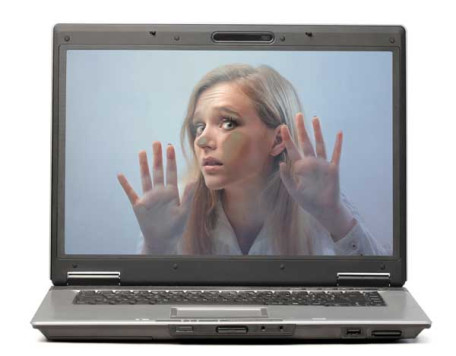© Pint of Science, 2025. All rights reserved.
Our planet's surface and the life it supports has been affected by cataclysmic events like biological hazards, and prolonged periods of extreme climate and tectonic reconfigurations.
Come and explore the major hazards of our planetary home and Mars; from present day volcanic eruptions back to prehistoric mass extinctions (and everything in between!).
This event is restricted to over 18s only, and unfortunately there the only access is down stairs.
Come and explore the major hazards of our planetary home and Mars; from present day volcanic eruptions back to prehistoric mass extinctions (and everything in between!).
This event is restricted to over 18s only, and unfortunately there the only access is down stairs.
The World's Most Diabolical Virus
Dr Kirstyn Brunker
(Research Assistant (Institute of Biodiversity Animal Health and Comparative Medicine))
Raging monsters, savage madness, inhuman possession, all phrases you might associate with horror films. But actually these are all terms that have been used to describe a very real and terrifying disease: Rabies. One of mankind’s oldest and most fearsome foes rabies is caused by a virus inflicting horrendous clinical symptoms and 100% fatality. As a threat to millions around the globe it still causes the death of tens of thousands of people every year. Kirstyn will take a look at the nightmare and reality of rabies around the world and what researchers are doing to try and stop it.
Martian Volcanoes
Dr Benjamin Cohen
(Research Associate (School of Geographical and Earth Sciences))
The planet Mars is home to the largest volcanoes in the solar system. The largest of these volcanoes, Olympus Mons, is nearly 22 km high - that's 2.5 times taller than Mount Everest! It is also over 600 km wide, which is similar to the distance from Glasgow to London. Other Martian volcanoes (e.g., Elysium, Arisa, Pavonis) are only slightly smaller. Pieces of volcanic rock from Mars have been delivered to Earth in the form of Martian meteorites, and are available for scientific analysis. Ben will explain the cutting-edge research on Mars happening here in Glasgow.
Explosive Interactions and Predicting the Unpredictable
Sapphire Wanmer
(Postgraduate Researcher)
Hold tight for a whistlestop tour of explosive interactions and predicting the unpredictable as we delve into the science of volcanology. Using the 2010 eruption of that ‘un-namable’ Icelandic volcano Eyjafjallajökull [pronounced:Eya-f-yatla-yo-kotla] as an example Sapphire will show you how much worse volcanic eruptions can be when water gets involved and explain how we can see this in the UK rock record from 55 million years ago. With the help of some comedy analogues and audience participation this talk will ignite your imagination and blow your mind thanks to the awesome power of volcanoes
How Do We Know When the Dinosaurs Died?
Annemarie Pickersgill
(PhD Student at the University of Glasgow)
The dinosaurs died out before Twitter, so how do we know when it happened? Annemarie will discuss how we can tell how old a rock is, and what that means for our understanding of the world 66 Ma years ago - the time of the Chicxulub impact and the death of the dinosaurs.
Snowball Earth: How to Freeze (and Defrost) a Planet
Alan Hollinsworth
((Postgraduate Researcher))
On a number of occasions prior to the development of complex life, our planet experienced extreme cold spells that lasted millions of years. These anomalous freezing episodes caused equatorial glaciations at sea level, brought the water cycle to a standstill, froze the Earth's crust to several kilometres depth, and may even have stimulated the development of complex life. In a few short minutes, we will whirlwind through the highly controversial "Snowball Earth" debate, exploring the causes and consequences of prolonged (up to) -50⁰C Earth surface temperatures.
Map data © OpenStreetMap contributors.
Other Waxy O'Connors events
2025-05-20
Research to Policy, Policy to Reality
Waxy O'Connors
44 West George Street, Glasgow, G2 1DH, United Kingdom
2025-05-19
Brainwashed? Psychology of Pop Culture
Waxy O'Connors
44 West George Street, Glasgow, G2 1DH, United Kingdom




